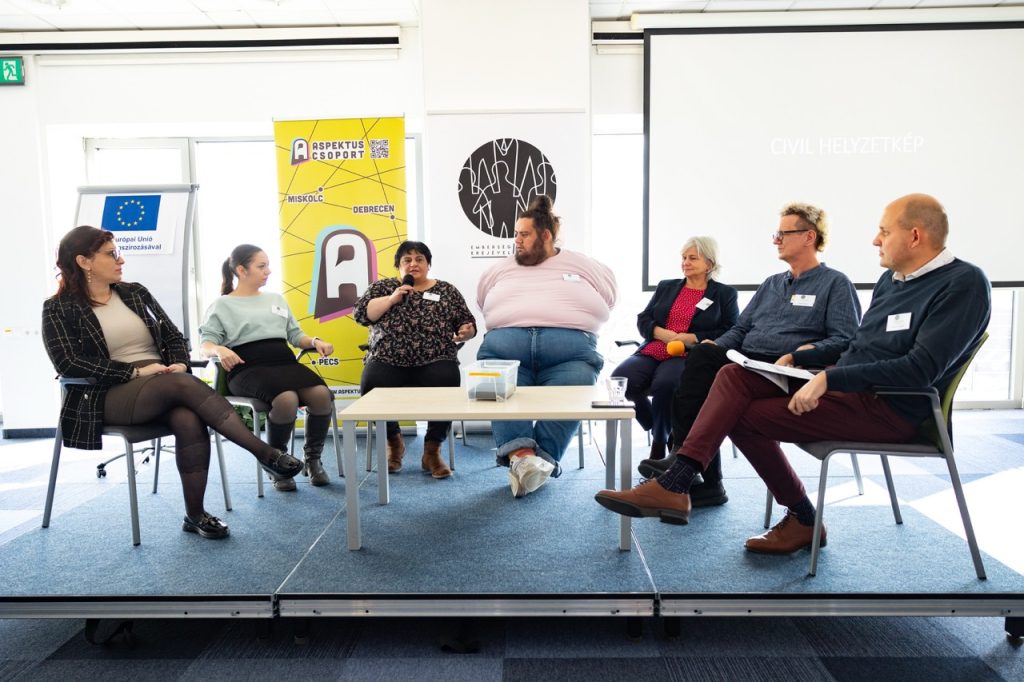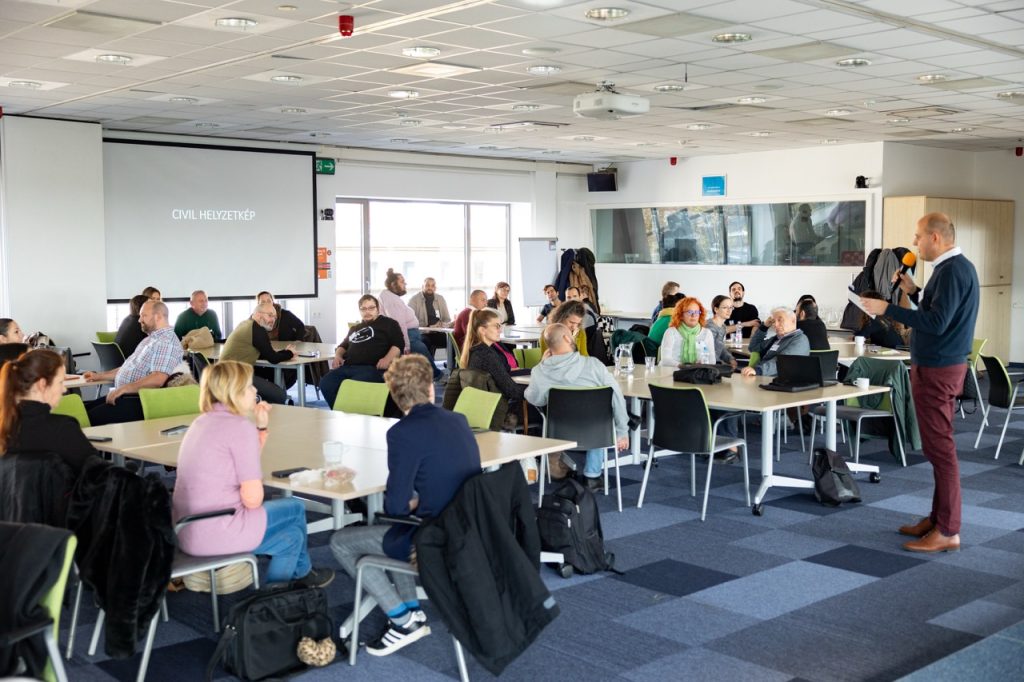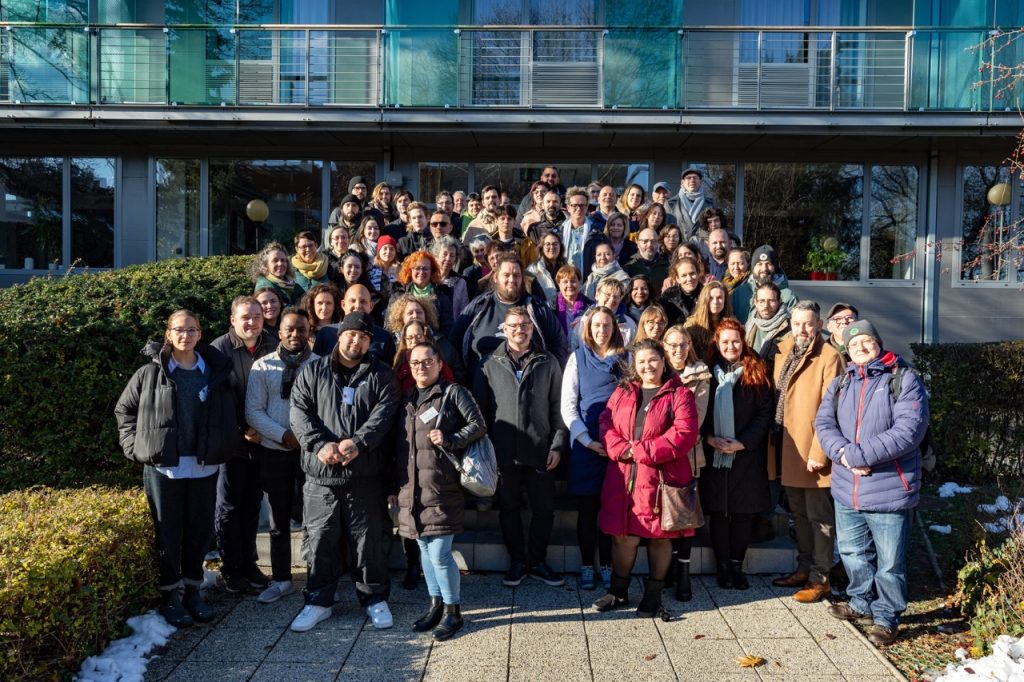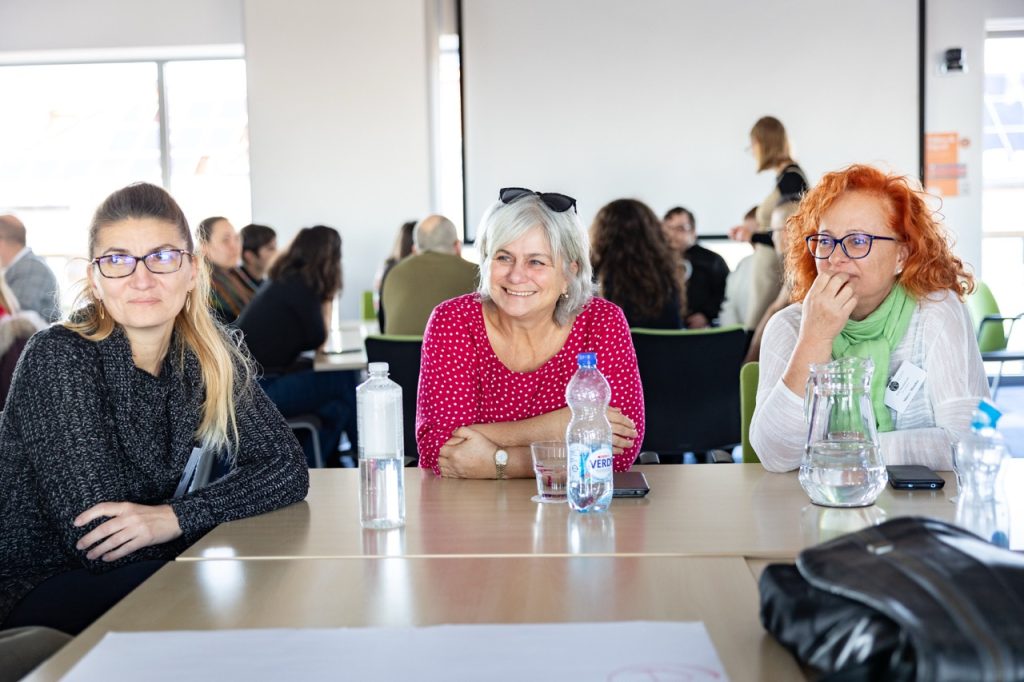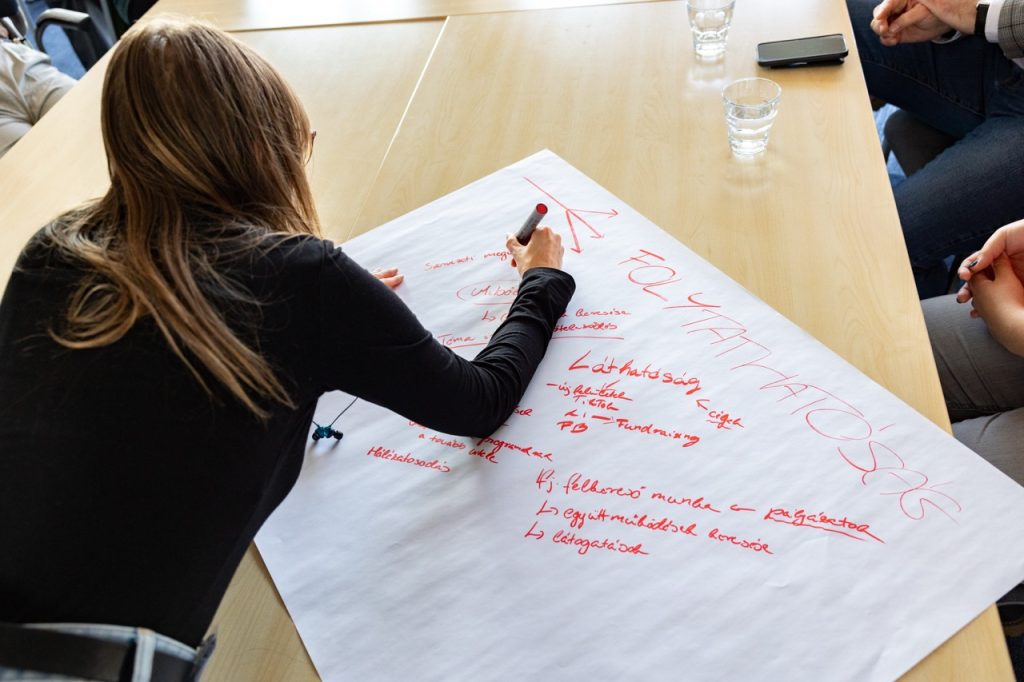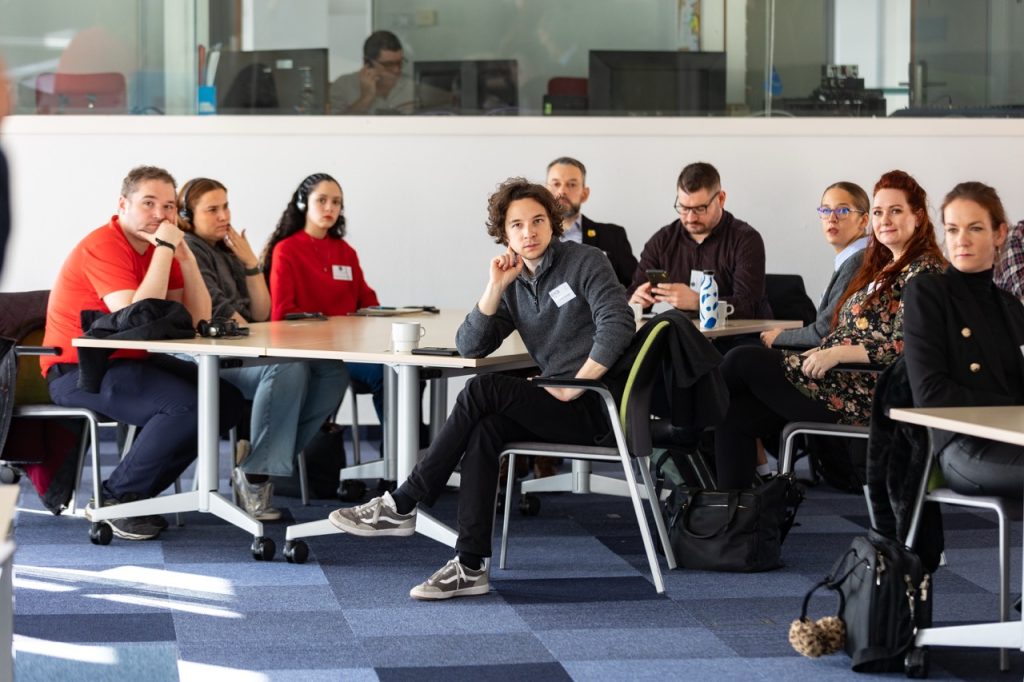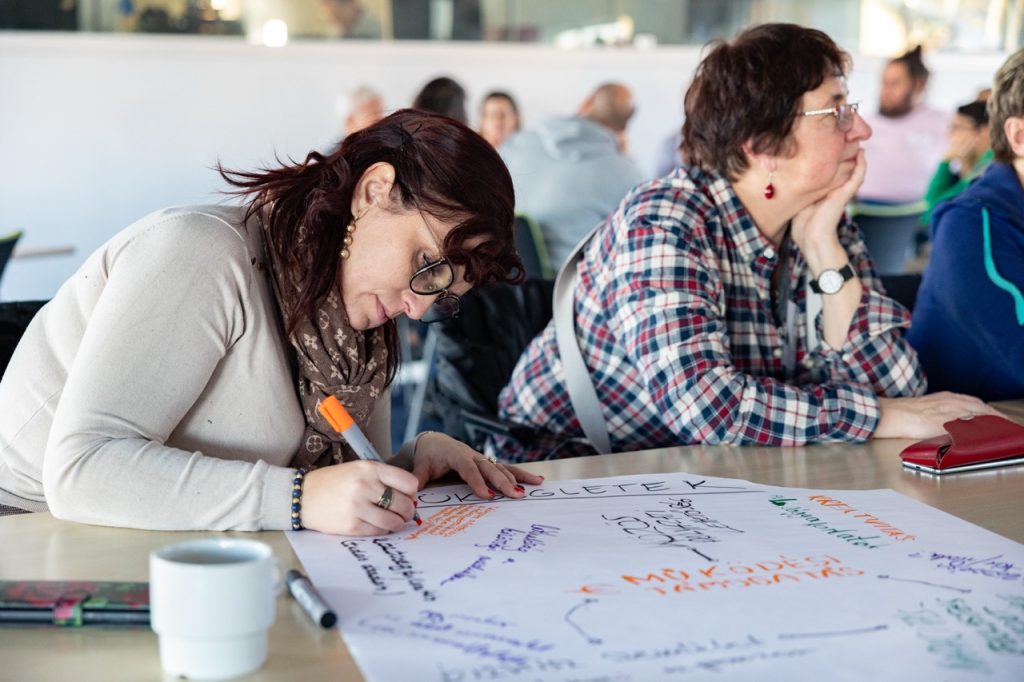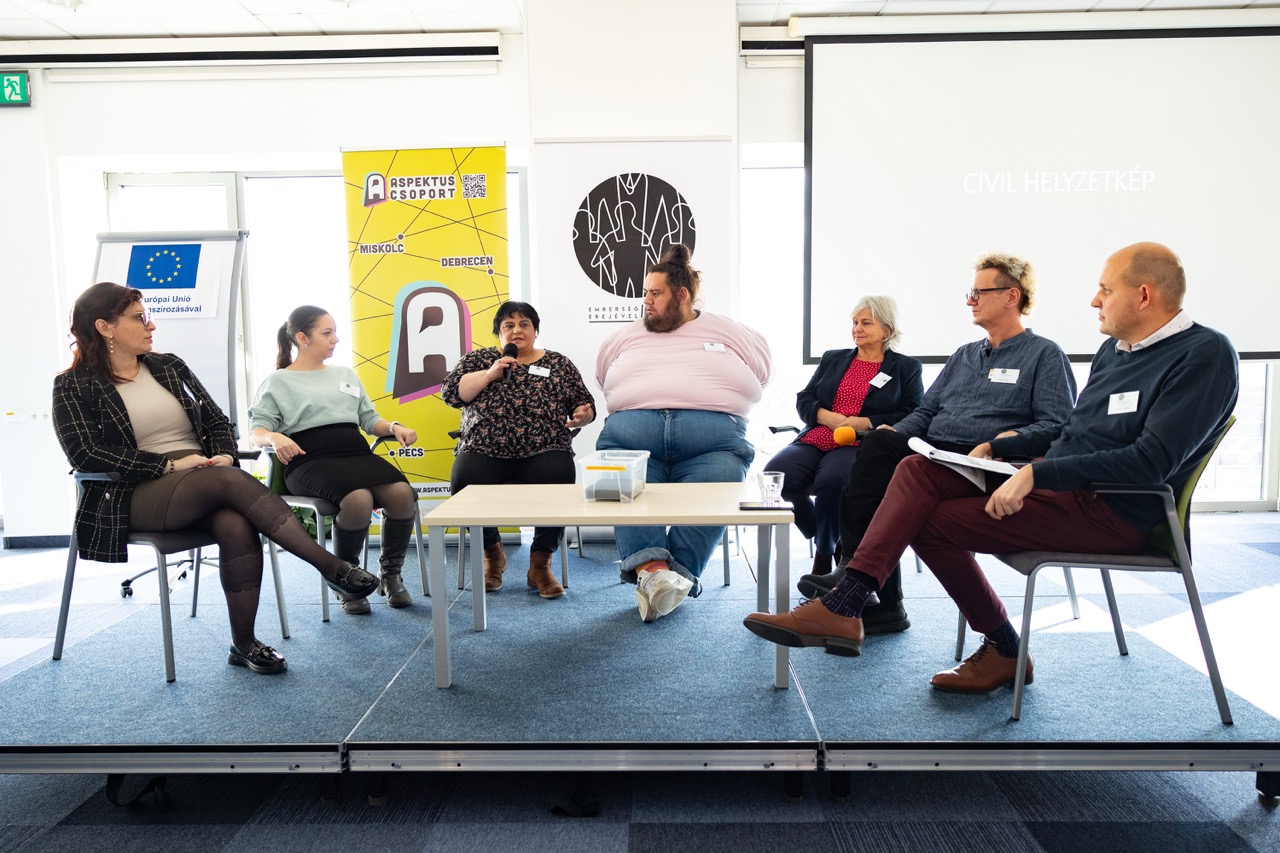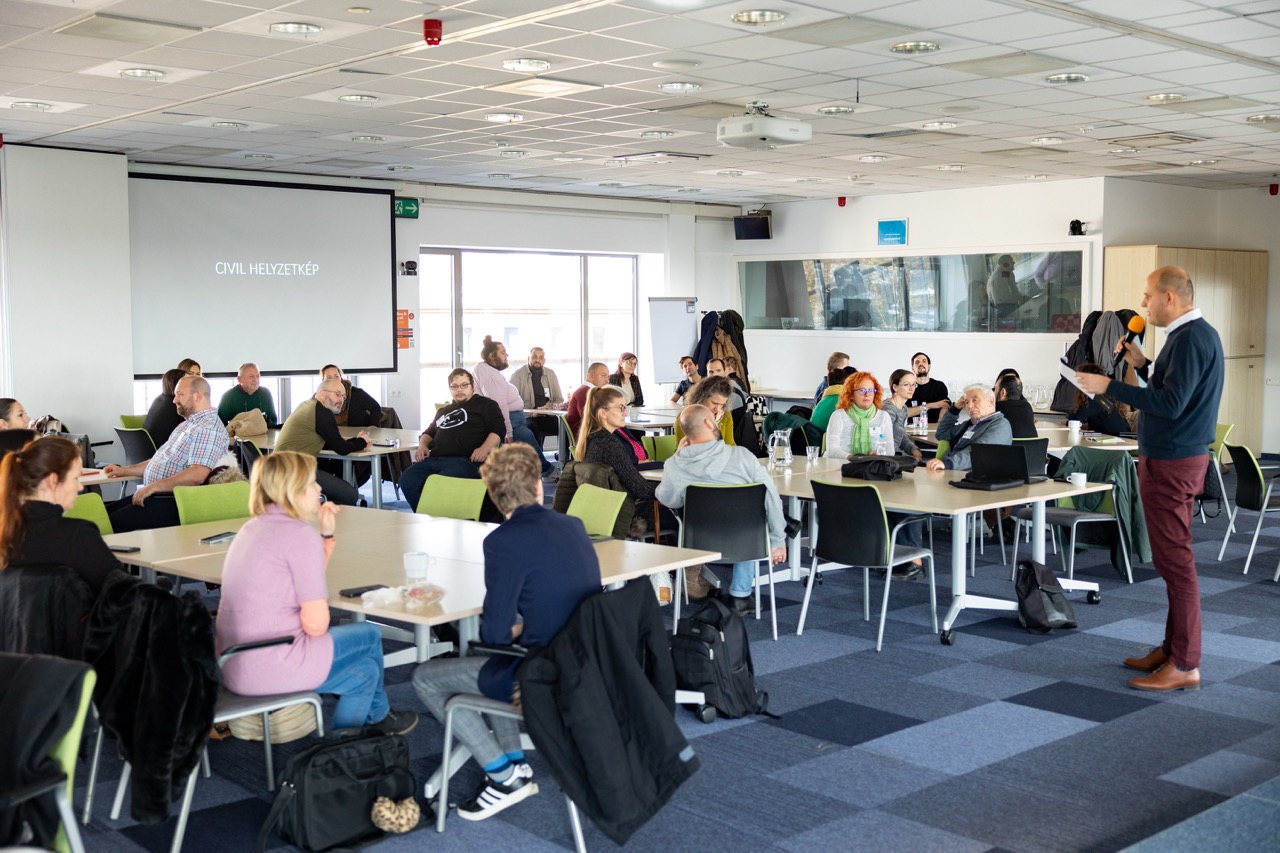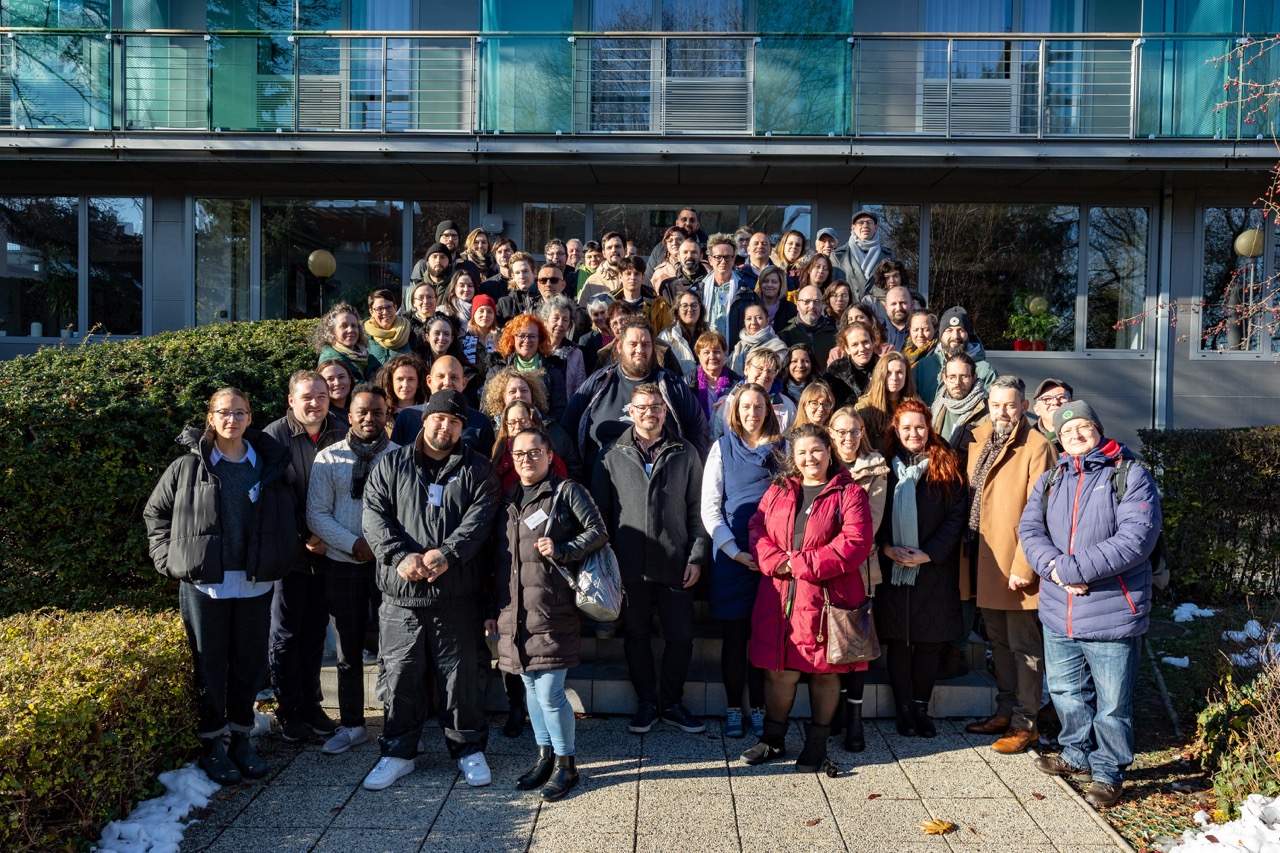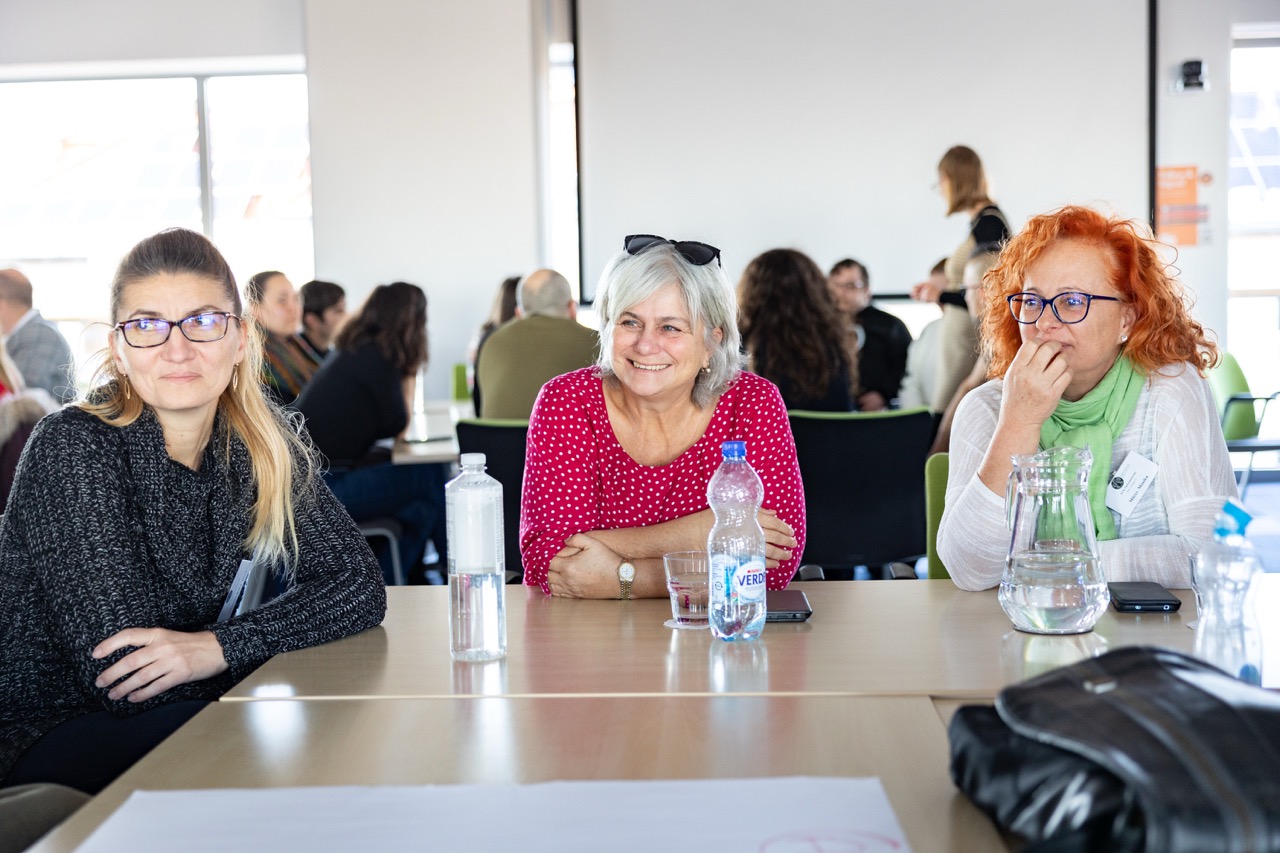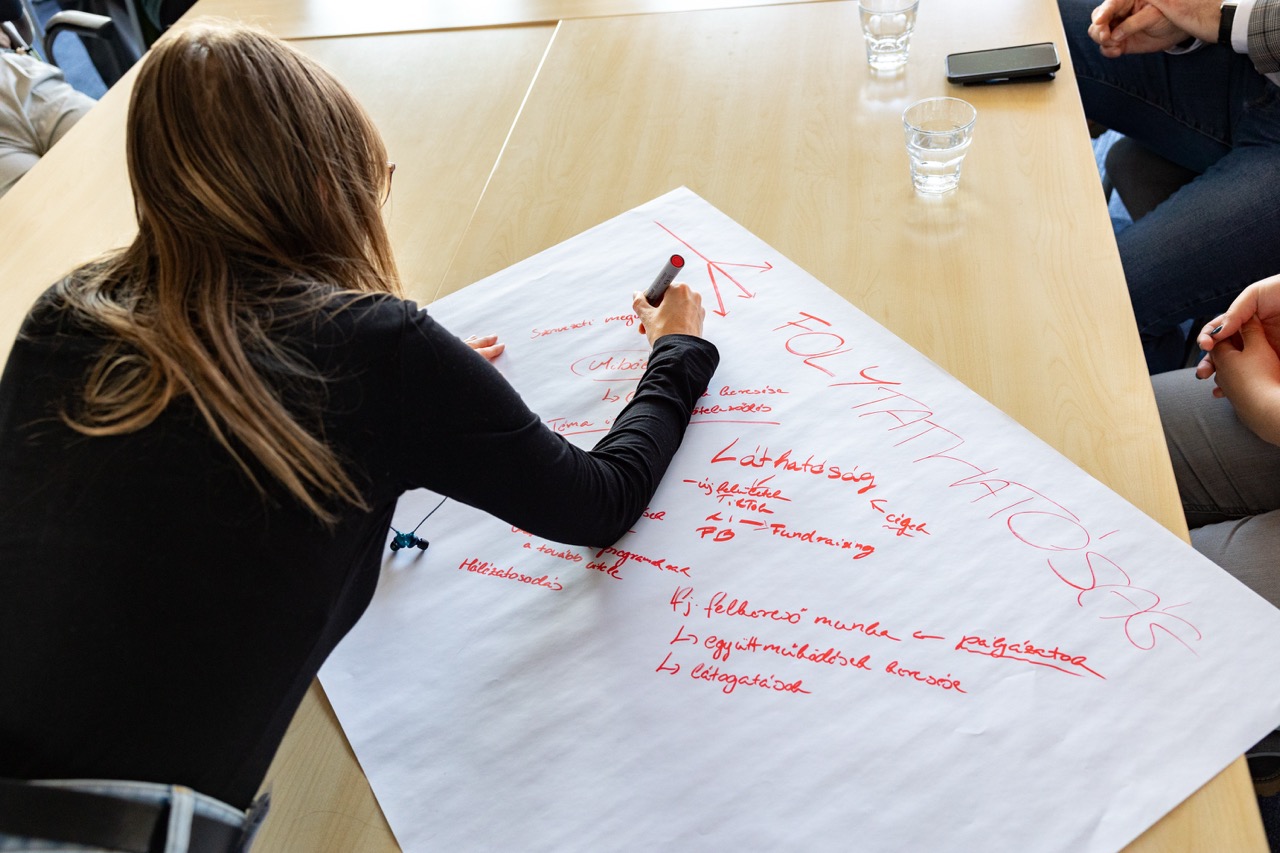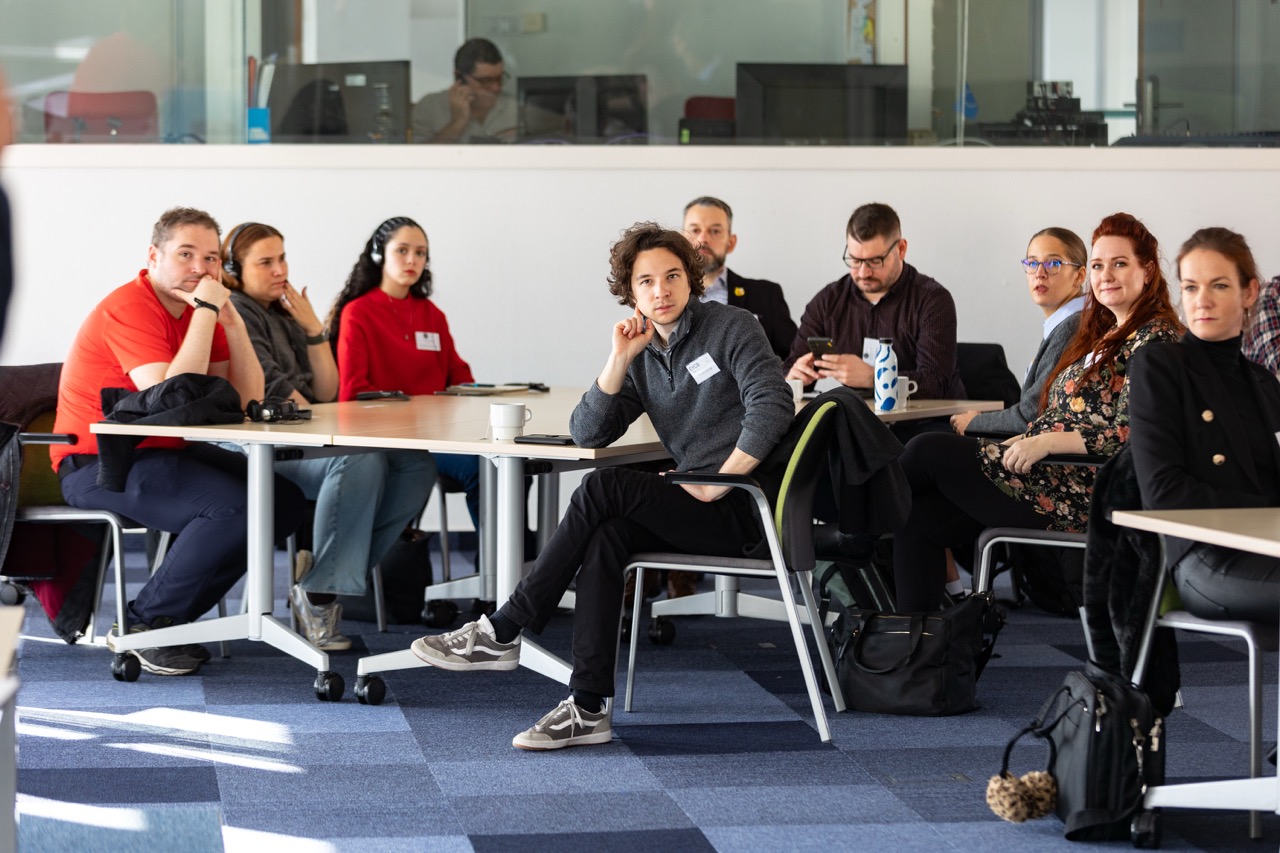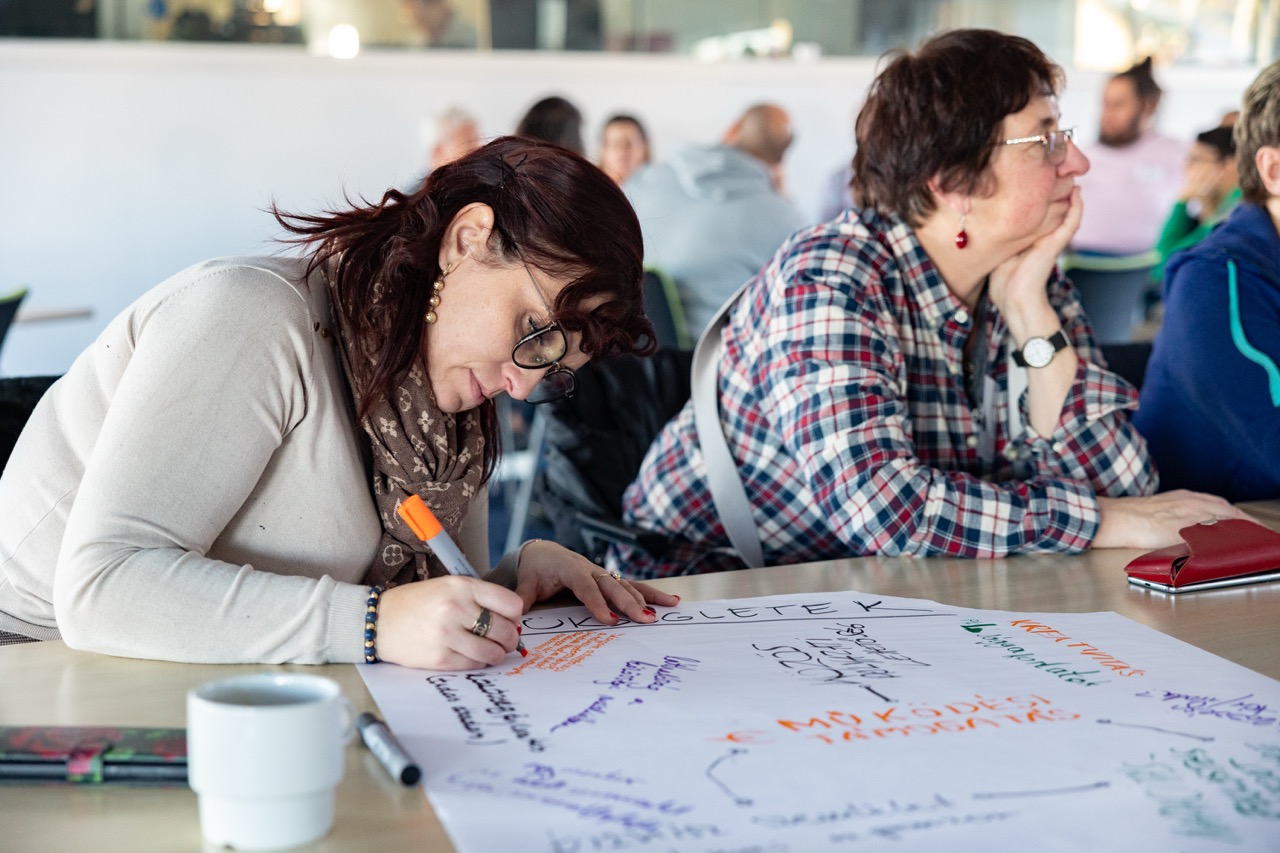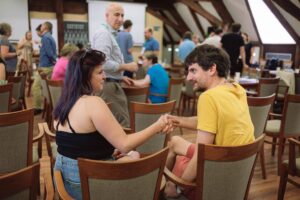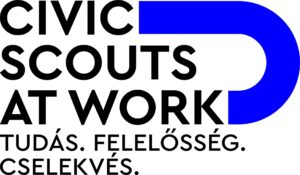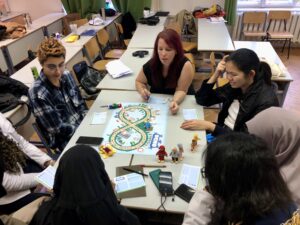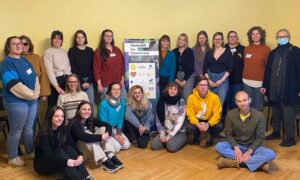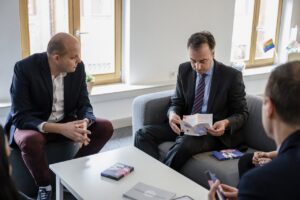With around 80 participants, backed by NGOs, diplomatic missions abroad and grant-giving organisations, the Power of Humanity Foundation closed the Katalizátor and Indikátor applications under the Growing Civic Communities programme at the European Youth Centre in Budapest.
If only “I had the capacity to do capacity development much earlier! Thanks for giving me the chance now”, wrote one participant on a feedback flipchart at the end of the day. This honest testimony perhaps best sums up the experiences of recent years with programmes to strengthen civil society. It has confirmed the importance of these programmes for grantmakers, the value of investing time and energy in a capacity building process for civil society, and the importance of the Growing Civic Communities model for our Foundation as a key support system for civil society in Hungary.
“As is our custom, we did not try to organize a “compulsory” application event, but we filled the day with useful and colorful programs” – explained András Nyirati, President of the Foundation, adding that international guests, foreign diplomats and the German Marshall Fund, which coordinates the application program, were also invited to the event. “The aim was to give them the opportunity to get first-hand information on the Hungarian rural sector in an informal setting. They regularly ask what is happening with NGOs, what difficulties they are facing, how they operate, how they think, what would be the most effective way to support them. In recent years we have regularly organised such meetings because it is a good opportunity for an honest and open exchange of views. This is necessary, because the civil society is not static, it is changing and these health checks help us and our supporters to stay informed.”
In addition to the structured and informal discussions, there was an opportunity for networking. Many people already knew each other from the online peer group, and this absolutely confirmed the need for mentoring, ongoing contact and social events during implementation, as it makes it much easier for NGOs to connect with each other.
The other Aspect Group organisations were also represented at the closing event, as the implementation of the proposals was carried out with their cooperation, and joint work with AKE in Debrecen, Dialóg in Miskolc and Motiváció in Szeged prepared the upcoming, larger funding programmes. Gábor Bernáth gave a presentation on the foundations of fact-based communication, presenting a NGO research project to the participants.
The roundtable discussion was uplifting because, in addition to identifying problems, the focus was not on complaining but on moving forward, on how to respond. Participants said that they learned a lot from the programme, the importance of personal organisational diagnostics (Toolbox) was echoed by many and highlighted, and this confirmed for us that the method is crucial, and that in capacity development it is important to tailor-made to the organisation (as much as possible).
